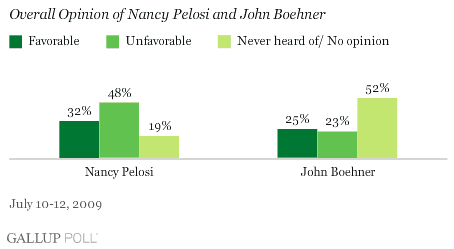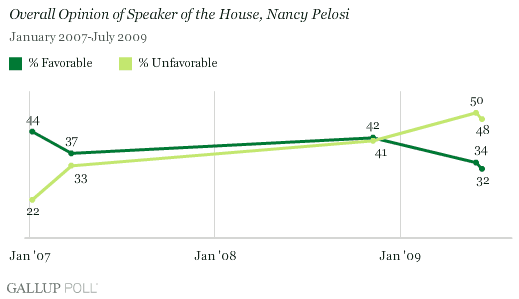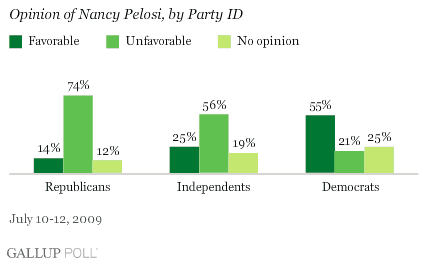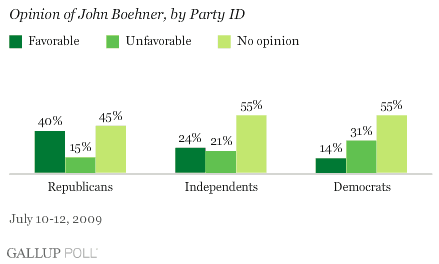PRINCETON, NJ -- As the 111th Congress nears its August recess, Americans continue to view Democratic House Speaker Nancy Pelosi more unfavorably than favorably, 48% vs. 32%. House Republican Leader John Boehner's ratings are equally positive and negative; however, the majority of Americans have either not heard of him or don't know enough about the 10-term Republican congressman and two-term House GOP leader to rate him.



Boehner is not a familiar name to a majority of Democrats and independents, and he is largely unknown to nearly half of Republicans. Naturally, his image, among those who can rate him, is more favorable than unfavorable among Republicans and tilts negative among Democrats. In contrast to Pelosi's mostly negative ratings from independents, Boehner's ratings from this group are about equally balanced.
These ratings of Boehner are the first Gallup has obtained on the Ohio lawmaker.

Bottom Line
At a time when Congress holds the power to pass landmark legislation in healthcare and energy and is considering additional economic stimulus spending that could affect the country for generations to come, Americans have less than full confidence in two of its leading power players. Pelosi's image is damaged to the point that just a third of Americans view her favorably and nearly half unfavorably. And while Americans are at least familiar with Pelosi, Boehner is an unknown commodity to nearly half the country, leaving only a quarter who view him favorably.
Survey Methods
Results are based on telephone interviews with 1,018 national adults, aged 18 and older, conducted July 10-12, 2009. For results based on the total sample of national adults, one can say with 95% confidence that the maximum margin of sampling error is ±3 percentage points.
Interviews are conducted with respondents on land-line telephones (for respondents with a land-line telephone) and cellular phones (for respondents who are cell-phone only).
In addition to sampling error, question wording and practical difficulties in conducting surveys can introduce error or bias into the findings of public opinion polls.
